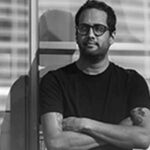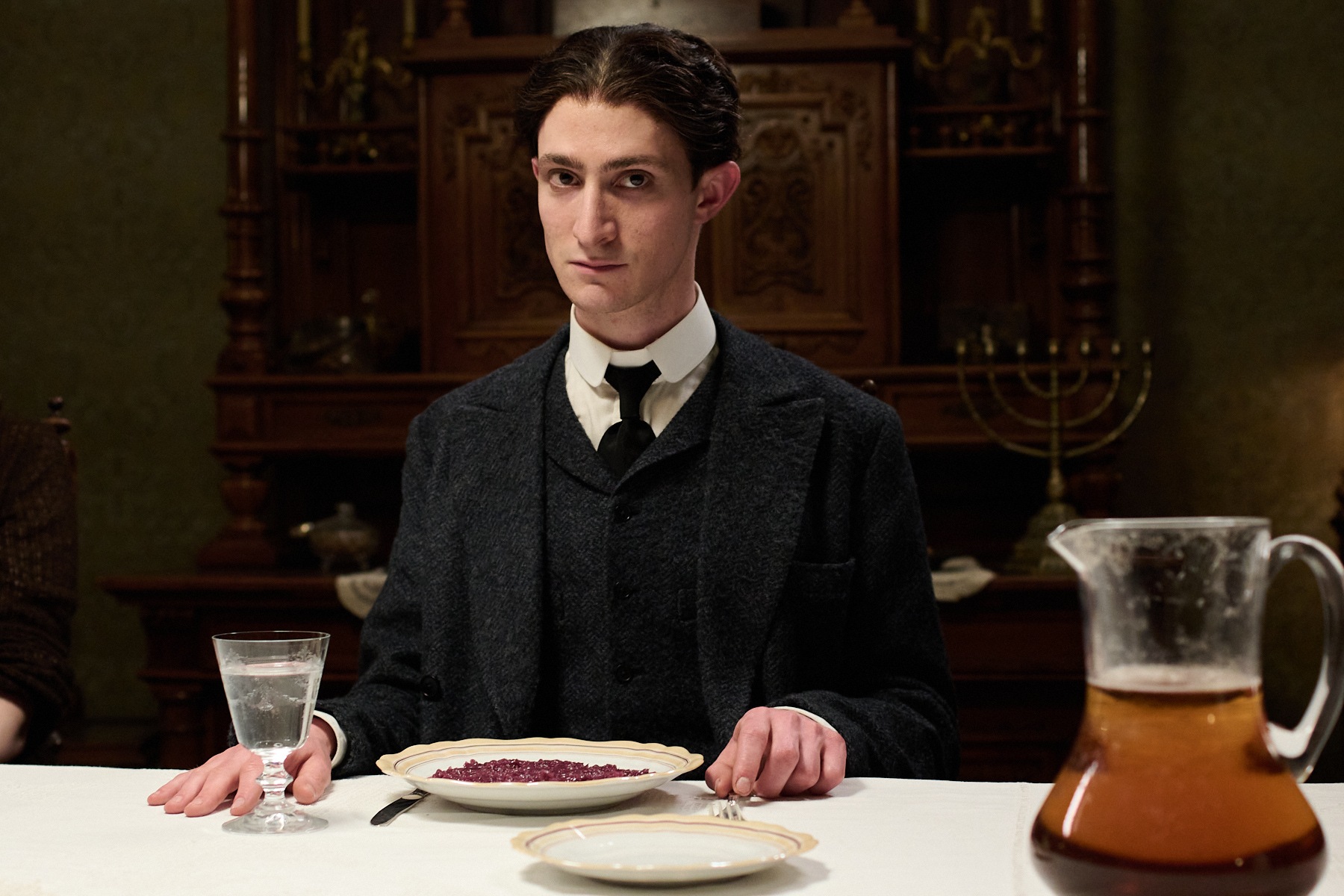Franz
Franz
VERDICT: Newcomer Idan Weiss shines in Agnieszka Holland's vivid portrait of the tortured writer.
It is said that the ratio of the words written by Franz Kafka versus those written about him is in the region of one to 10,000,000. Yet, it’s astonishing that for all the texts meditating on his life, work, and letters, the author remains elusive, and his stories and novels, over a hundred years after his death, still open to discussion and debate. Thus, it might seem folly to attempt a biopic about the author, but Agnieszka Holland succeeds by refusing to pin him down. The moving and inventive Franz is a prismatic drama that, in not setting a particular path or destination, allows the audience to inhabit the brilliant and troubled mind of man who wasn’t recognized in his time and offers more than the shorthand caricature he’s become.
Largely skipping his early life, the ambitious screenplay by Marek Epstein takes a compelling, nonlinear approach, focusing on Kafka’s personal goalposts rather than his professional (which were few during his lifetime). What emerges is a picture of the writer struggling to understand who he is and who he wants to become. The man, born into a Jewish family, was just as ready to contemplate atheism as he was ready to proudly fight for his country in World War I, until he was pulled away, deemed necessary in his role at Workers’ Accident Insurance. Epstein and Holland’s Kafka, you’d be surprised to find out, fucks. Eccentric he may be — writing long into the night; possessing unpolished social graces — he’s nonetheless a creature of interest to the opposite sex. Kakfa becomes engaged, only to fall in love with his bride’s best friend. Afterward, he takes up with the wife of another acquaintance. But, paradoxically, it’s really solace he seeks.
The conflicted desire of intellectual pursuits and quotidian societal norms are beautifully portrayed by Idan Weiss in his first feature film role. In his breakout performance, the actor finds the sweet spot of a man not of this world, but saddled with being part of it. Weiss serves the necessary center of a movie and holds together its admirable flourishes: supporting characters that also serve as Greek chorus-y narrators; anachronistic music from Polish indie rock band Trupa Trupa; and The Zone of Interest-esque leaps to the Frank Kafka Museum, where we follow contemporary visitors on guided tours. This is all wrapped in cinematography by Tomasz Naumiuk that tips toward the wide-lensed look of Yorgos Lanthimos’ recent pictures.
The film’s adventurous spirit modestly tapers off in the back half, disappointingly leaning into a more traditional narrative structure as it heads into the final years of Kafka’s life. And while Weiss and the ensemble do terrific work (Katharina Stark as Franz’s beloved sister Ottla is another highlight), the bellicose performance by Peter Kurth as the writer’s domineering father hits one, increasingly grating note. But these are merely occasional misprints on an overall text that is wholly compelling.
The Franz Kafka Museum sells official tote bags, postcards, and even a travel diary with commemorative stickers celebrating the legendary author. During your visit in Prague, you might decide to stay at the Franz Kafka Hostel, or visit The World of Franz Kafka, an immersive exhibition that has little to do with the author at all. Perhaps you could wrap up your trip by viewing David Cerny’s Statue Of Kafka, a massive, movable, 24 tonne stainless steel sculpture of the author’s head, situated outside a shopping mall. There is no doubt that Kafka himself, who forever sought silence, who wanted his works destroyed upon his death, would be aghast at the noise around his legacy. He’d likely feel like he was caught in the torture device of “In The Penal Colony.” However, Franz might just please Kafka — by choosing not to define him, the film allows the author to be whoever he wants.
Director: Agnieszka Holland
Screenplay: Marek Epstein
Cast: Idan Weiss, Jenovéfa Boková, Peter Kurth, Ivan Trojan, Sandra Korzeniak, Katharina Stark, Sebastian Schwarz, Aaron Friesz
Producers: Agnieszka Holland, Sarka Cimbalova, Uwe Schott, Jorgo Narjes, Marcin Wierzchoslawski, Alicja Jagodzinska
Cinematography: Tomasz Naumiuk
Production design: Henrich Boraros
Costume design: Michaela Horackova Horejsi
Editing: Pavel Hrdlicka
Music: Mary Komasa, Antoni Komasa Lazarkiewicz
Sound: Marek Hart
Production companies: Marlene Film Production (Czech Republic), X Filme Creative Pool (Germany), Metro Films (Poland)
World sales: Films Boutique
Venue: Toronto International Film Festival (Special Presentations)
In German, Czech
127 minutes


